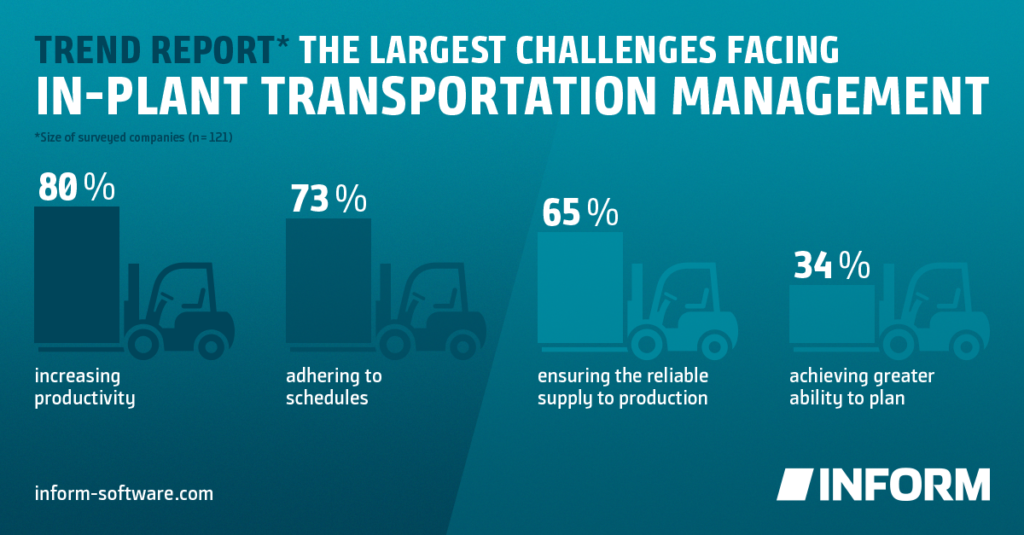Study raises hopes for increasing digitalisation
20th May 2021

The latest trend report from the optimisation specialist INFORM reveals a positive development in internal logistics in German production companies. For a long time, they did not have technologically advanced or optimised in-plant logistics processes in place, but today, digitalisation seems to be a priority for specialists. However, the actual implementation is still slow.
“76% of the 121 surveyed specialists and executives find in-plant transport jobs relevant or very relevant to the overall success of the company,” says Torsten Inkmann, Director of Industrial Logistics at INFORM. “Only 10% completely agreed that production is the core of the company and logistics are only a necessary secondary function. They consider increasing productivity (80%), adhering to schedules (73%) and ensuring the reliable supply to production (65%) as the largest challenges.
“Production in many industries is becoming ever more flexible, with greater options, and at the same time, increasing demands on deadlines for supply capacity. These developments also require transport that is more flexible and thus real time control over the ability to plan and react. Digitisation offers answers to exactly these questions.“
The key results of the study:
- Digitalisation projects: The companies surveyed identified the following as the most critical solution strategies over the short to medium term: JIT/JIS supply (48%), driverless transport system (DTS) implementation, (47%), and transport control system implementation (42%).
- On-site transports: More than 100 transport orders per day must be managed by 71.5% of the surveyed companies. They are faced with a complex transport planning situation. Typically, stackers (95%) are still used for transport in these cases, followed by tugger trains and towing vehicles (34% each) and lastly DTSs (25%).
- Logistics-IT: Only half of the companies see themselves in a position to plan internal transports in advance. Yet, most companies use only warehouse management and ERP systems for transport control and material flow tracking. At least 80% of those surveyed do not use technologies with intelligent functions such as real time management, algorithmic optimisation, or planning against tangible limited capacities.
- Spiraling costs: Yet two-thirds of companies never record the costs they incur for individual transport jobs or they simply assign them to a general cost centre. A mere 7% of those surveyed are able to provide information about the costs of individual transport jobs when asked.
- Cloud systems: Half of the companies surveyed are open to cloud services for in-plant transportation management; however only 5% of the surveyed companies currently use these types of systems.
- Compared to the results of a similar study conducted by INFORM in 2013, for example the percentage of companies relying on DTSs (25%) is almost twice. “It appears to me that the perspective has changed,“ watches Inkmann. Nevertheless, the study shows that many digitisation projects are still in their infancy.
The study surveyed 121 specialists and executives at German companies, primarily employed in the areas of logistics and supply chain management. They participated by completing an online questionnaire from the end of October 2020 until the beginning of January 2021. Three quarters of the companies that participated in the study are production companies from various industries, and one quarter of the participants are trading companies.
DOWNLOAD the study here: https://www.inform-software.com/logistics/transport-control-system/study

